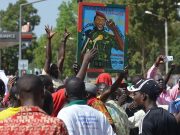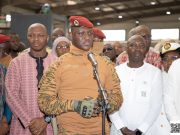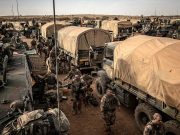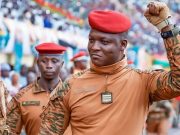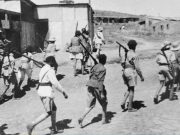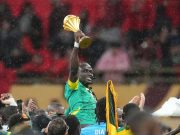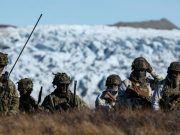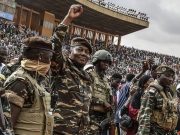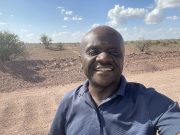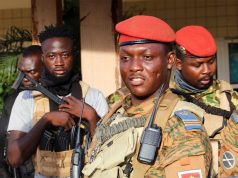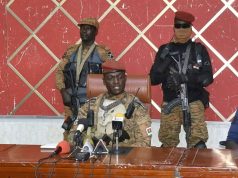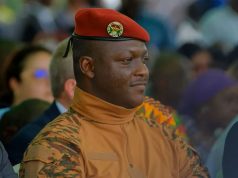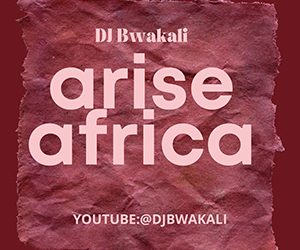For Traoré, Compaoré’s regime had always been a shadow in his life, looming over his youth. Since 1987, when Compaoré seized power through a coup that left revolutionary leader Thomas Sankara dead, the country had never known another leader. Traoré, then just a child, grew up in a country in Compaoré’s firm grip. The young soldier had never known a government that did not belong to Compaoré, whose face was stamped on every promise of progress that never arrived, and every stifling policy that deepened the people’s despair.
Now, on October 30, 2014, as the protests reached their fever pitch, that regime stood on the brink of collapse. The streets were alive with bodies and slogans, the cacophony of discontent drowning out the government’s denials. Although Traoré was on the sidelines in Kaya, more than 100 kilometers away, his heart and spirit were in Ouagadougou with the people. The struggle gripping the city and the country by extension was a battle for Burkina Faso’s soul. In those violent, electric days, preceding October 30th, Traoré found himself torn between his uniform and the ideals that swelled within him. His loyalty lay with the people’s unstoppable force.
Across Ouagadougou, fires blazed. The people had set alight the Parliament building and the very notion of a ruler clinging to power past his time. They dragged statues of Compaoré from their pedestals, toppling the symbols of decades of oppression. Traoré, in the ranks of junior soldiers, felt the tremors of revolution from far away. The sense of duty to his nation, not to the man who ruled it, began to take precedence.
He could feel it in the tense glances he exchanged with fellow soldiers, some still loyal, others quiet in their internal conflict. The people’s anger was evident, a living thing that surged against the government’s barricades. Compaoré had suppressed uprisings, quelled dissent, and survived mutinies for years. Traoré had seen how the government used soft words and sharp bullets to suppress numerous revolts. But this time felt different. This time, it was as though all of Burkina Faso had risen, young and old, across ethnic and religious divides.
